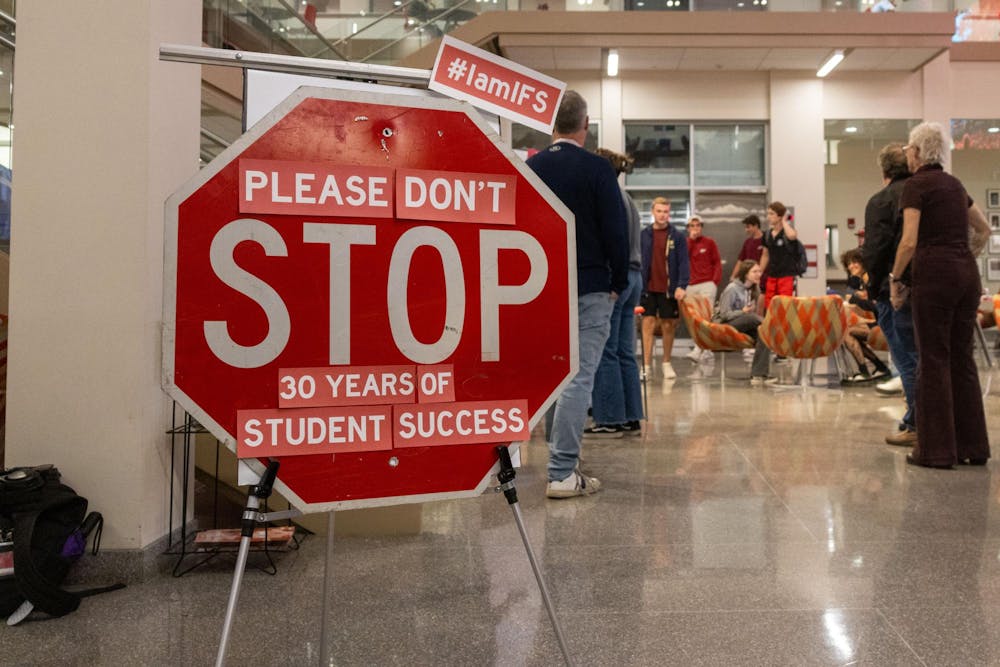Supporters of IU’s Intensive First-Year Seminars wrote letters to IU Provost Rahul Shrivastav and Vice Provost of Undergraduate Education Vasti Torres on Wednesday, sharing their experiences with IFS in a bid to keep the program.
Additionally, a petition with over 1,500 signatures calls for IU to “Save IFS,” and an IU Student Government resolution passed Monday asks IU to reconsider the decision and collaborate with students, faculty and staff on any changes to IFS.
IFS was a transition-to-college program for first-year students which began a few weeks before the start of the fall semester, according to the IFS website. The three-credit course was specifically tailored to students with need or merit-based scholarships.
Torres announced IU would end the over 30-year-old program at a debriefing meeting for IFS faculty Sept. 27. She said at a Bloomington Faculty Council meeting Oct. 1 that the role of IFS is being “transformed and redesigned” for all students, but she did not give specifics.
Dana Anderson, an associate English professor who taught an IFS course for 18 years, helped organize the letter writing. He said after Torres announced IU would end the program, some faculty members came together to discuss what they could do.
“We just kind of landed on the idea that maybe what would help would be to remind people that there’s a human face to the program and to let people share a bit of their stories rather than just protest, which only goes so far,” Anderson said.
Torres said in a statement provided to the Indiana Daily Student that while IFS benefits about 9% of beginner students each year, her office’s goal is to develop a program that serves all first-year students. She said in the statement students in a pilot of the new seminar this semester reported their participation was “helping them learn about the educational journey, transition to college and feel acclimated to campus.”
While Torres did not share more details of what this replacement will look like at the BFC meeting, Anderson questioned why both programs could not coexist, since they share the same goal of helping students transition to college.
“It’s humbling,” Anderson said, holding back tears. “I get emails at least weekly from former students as far back as 2007, and I got a flood of them, from students almost 20 years ago just this week in support of (the letter writing). And that’s characteristic for all the faculty. That’s just the nature of the relationship.”
Elise Suarez is a graduate student who took one of Anderson’s classes in 2018. A first-generation student and triple major, Suarez said she doesn’t think she would have been as successful academically without IFS.
“I know a lot of my classmates and just other people that were in my same year of IFS were first generations or were really, really anxious about college,” she said. “I met one of my best friends from there, and she wasn’t even sure if she wanted to go to college, and then IFS, she was like, ‘Whoa, I love it here.’”
Suarez said she would have liked for her brother, who is starting college next year, to have been able to attend IFS.
Allison Taube, a senior, said she enjoyed the IFS experience so much she returned as a student staff member for the last three years. Student staff acted as mentors for IFS students, Taube said, particularly because they are closer in age to new Hoosiers.
“We kind of act as a bridge for us, and faculty and IU for the incoming students,” Taube said.
Taube wrote multiple letters to the provosts.
Taube said in one, she wrote about her experience as a minority coming to a majority white school, which she described as “nerve-wracking.”
“But because I had my IFS class, it really helped me feel like there was a community for me on campus,” Taube said.
Outside Franklin Hall, where the letter writing took place, David McDonald, associate professor of folklore and ethnomusicology, played the bagpipes while wearing a kilt and an IFS shirt.
“There’s nothing more conspicuous than a professor in a kilt playing bagpipes,” McDonald said.

David McDonald, associate professor of folklore and ethnomusicology, plays the bagpipes outside Franklin Hall in Bloomington. McDonald taught IFS at least 12 times.
McDonald said the performance aimed to bring attention to the letter writing.
He said he ensured he was 25 feet away from the entrance to Franklin Hall while performing — a reference to the updated restrictions under IU’s new expressive activity policy which prohibits expressive activity that close to university building entrances. McDonald is currently a plaintiff in a lawsuit against part of that policy.
McDonald taught IFS at least 12 times. He said he “demanded” his son, a first-year student, take IFS this summer.
“He took it reluctantly, and he calls it the greatest experience he’s ever had,” McDonald said.
McDonald said faculty are focused on doing what they can to raise awareness on student experiences with IFS and communicate to administrators the importance of keeping it.
“And hopefully, when they hear from our students and they hear from our faculty, they will reconsider their decision to shutter this program,” McDonald said.




